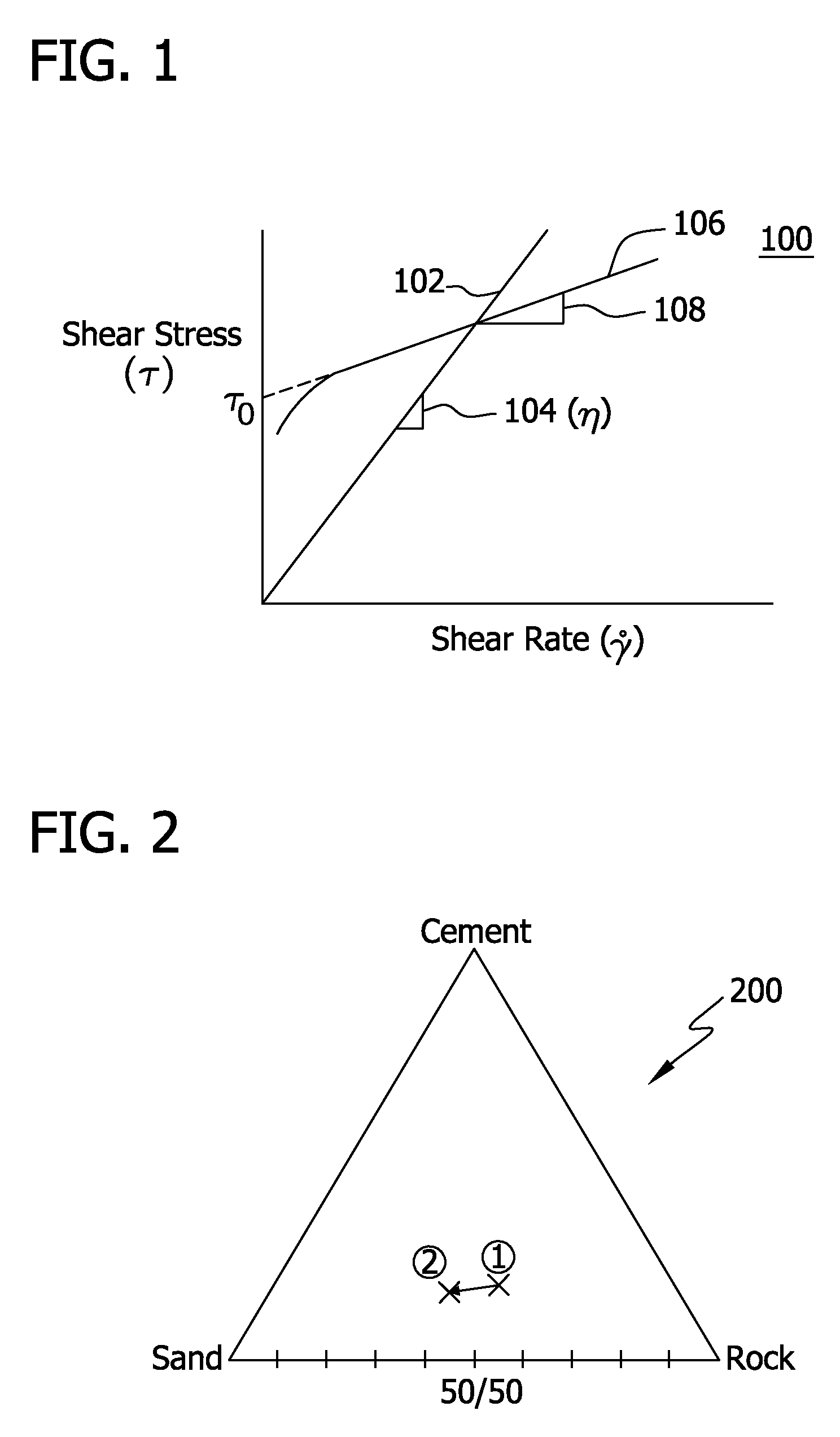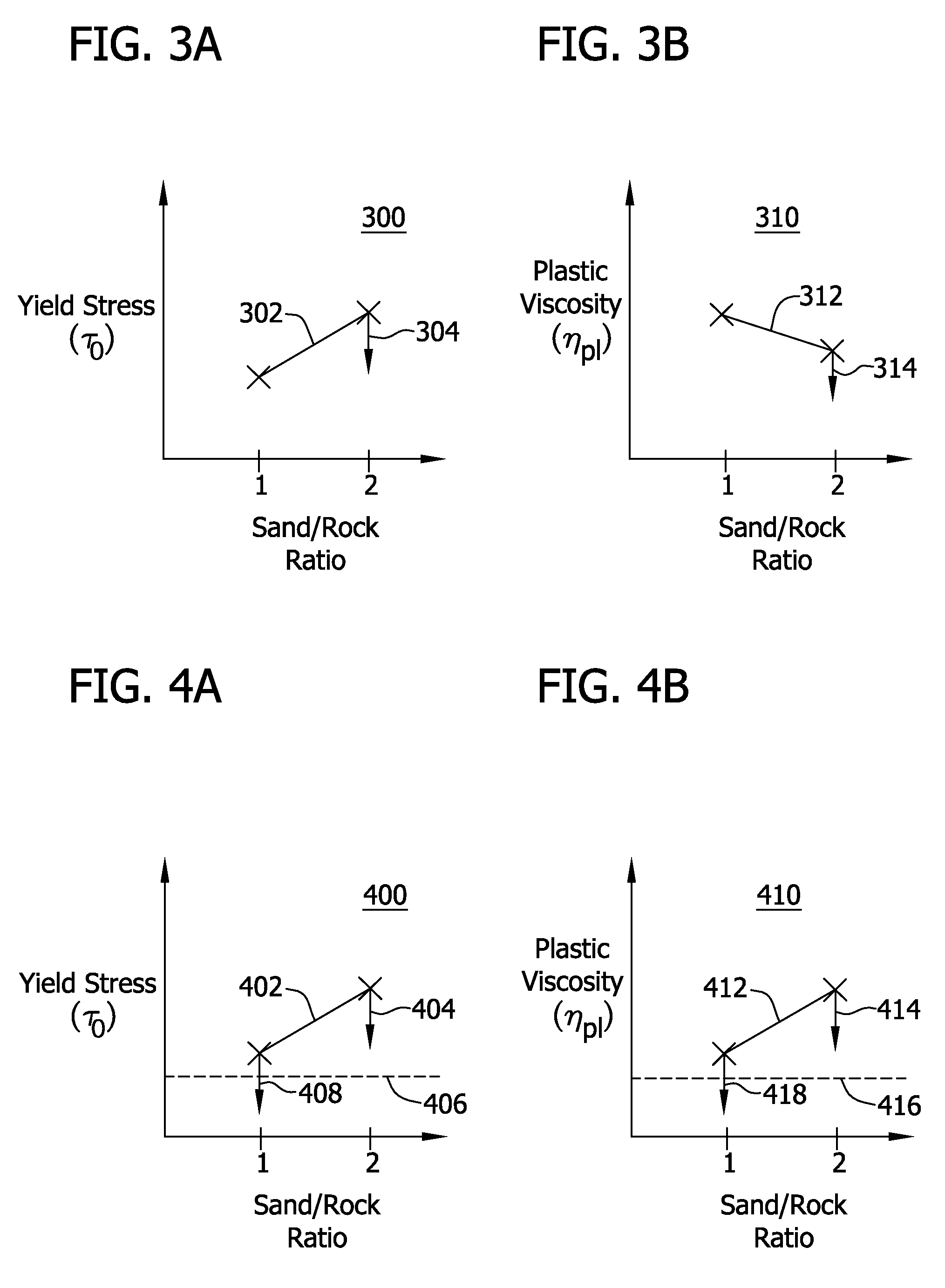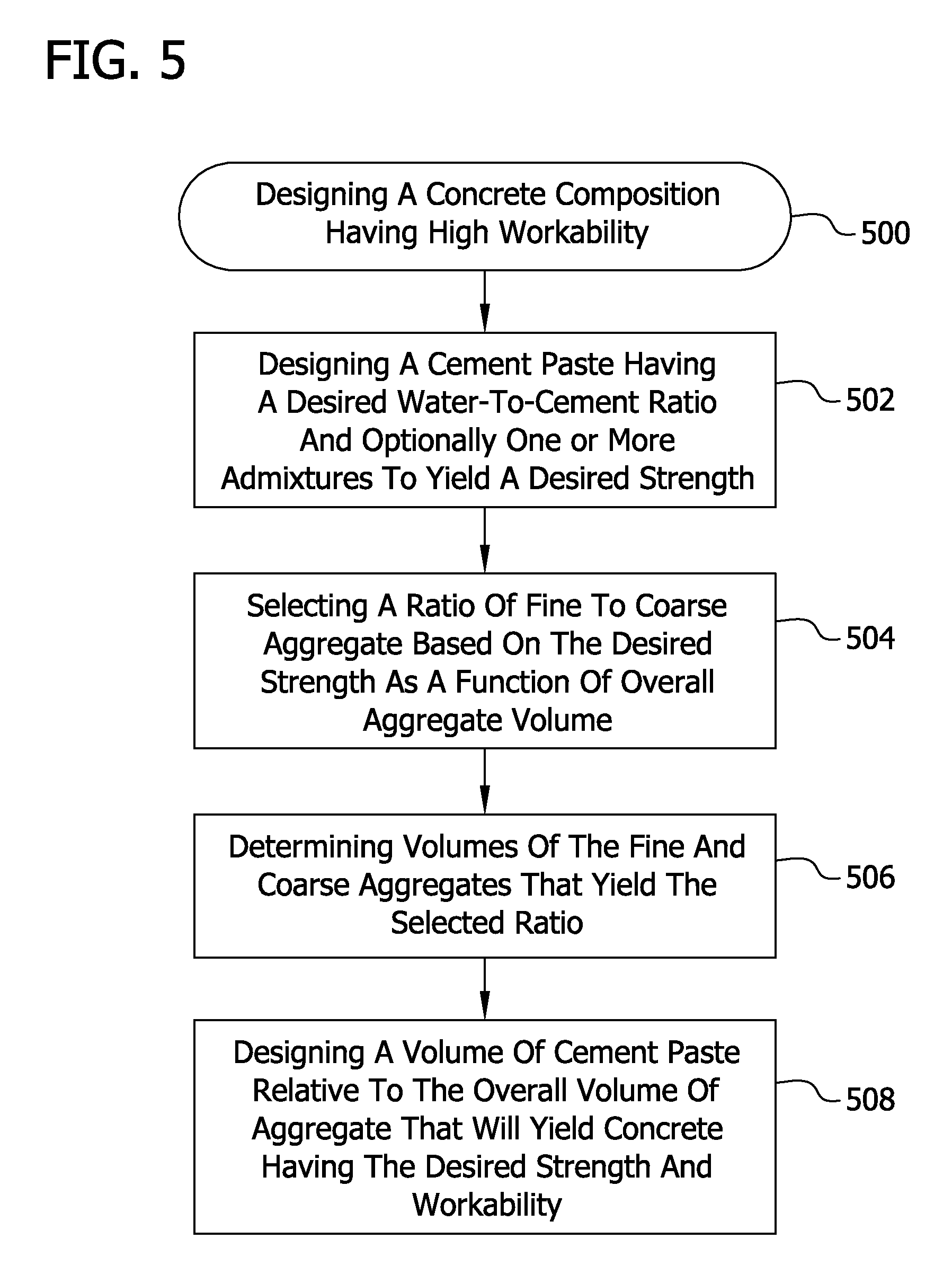Concrete optimized for high workability and high strength to cement ratio
- Summary
- Abstract
- Description
- Claims
- Application Information
AI Technical Summary
Benefits of technology
Problems solved by technology
Method used
Image
Examples
example 1
[0111]An optimized concrete composition of the disclosure having a 28-day design compressive strength of 3000 psi and a slump of 5 inches was manufactured according to the following mix design:
Hydraulic Cement (Type I) 340 lbs / yd3Pozzolan (Type C fly ash) 102 lbs / yd3Fine Aggregate (FA-2 sand)1757 lbs / yd3Coarse Aggregate (CA-11 state rock, ¾ inch)1452 lbs / yd3Water (potable) 294 lbs / yd3Air 2 vol. %
[0112]The optimized concrete composition is characterized as having relatively high workability, little or no segregation and bleeding, and a substantially higher strength to cement ratio compared to the concrete compositions of Comparative Examples 1a-1c, set forth below. The materials cost of the optimized concrete composition was determined to be $36.55, based on materials prices existing on Apr. 7, 2006.
example 2
[0116]A concrete composition is manufactured using a modified mix design derived from Example 1, except that the quantities of the various components are increased and / or decreased by an amount of up to 5%. The resulting concrete composition would be expected to be better optimized than each of Comparative Examples 1a-1c but not as well optimized as Example 1.
example 3
[0117]A concrete composition is manufactured using a modified mix design derived from Example 1, except that the quantifies of the various components are increased and / or decreased by an amount of up to 3%. The resulting concrete composition would be expected to be better optimized than each of Comparative Examples 1a-1c and also Example 2 but not as well optimized as Example 1.
PUM
| Property | Measurement | Unit |
|---|---|---|
| Length | aaaaa | aaaaa |
| Length | aaaaa | aaaaa |
| Pressure | aaaaa | aaaaa |
Abstract
Description
Claims
Application Information
 Login to View More
Login to View More - R&D
- Intellectual Property
- Life Sciences
- Materials
- Tech Scout
- Unparalleled Data Quality
- Higher Quality Content
- 60% Fewer Hallucinations
Browse by: Latest US Patents, China's latest patents, Technical Efficacy Thesaurus, Application Domain, Technology Topic, Popular Technical Reports.
© 2025 PatSnap. All rights reserved.Legal|Privacy policy|Modern Slavery Act Transparency Statement|Sitemap|About US| Contact US: help@patsnap.com



